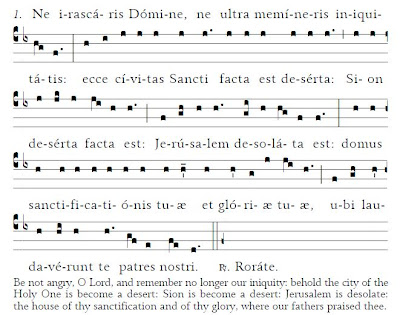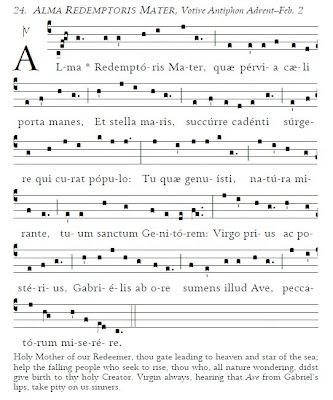In principio erat Verbum et Verbum erat apud Deum et Deus erat Verbum
In the beginning was the Word, and the Word was with God, and the Word was God...
ET VERBUM CARO FACTUM EST, et habitabit in nobis
And the Word was made flesh, and dwelt among us...
...et vidimus gloriam eius gloriam quasi unigeniti a Patre plenum gratiae et veritatis
And we beheld His glory, glory as of the Only-Begotten of the Father, full of grace and truth.
I remember hearing the Prologue of St. John's Gospel as the Christmas Day Mass Gospel as a child, kneeling at the Incarnation verse "And the Word became flesh", and bursting into tears, overwhelmed by the Truth proclaimed therein and the sense that this was the eternal Christmas story, from the point of view of the Eternal, Loving Father who sent His only Son...for the world...for me. I have never "gotten over" the reaction of my heart whenever I hear or read this passage; when I hear it at the end of every Extraordinary Form Mass, I still am moved to tears.
The medieval Christmas carol 'Balulalow'--a lullaby of praise for the Baby Jesus--says it perfectly (here the words are modernised):
Prepare thy cradle in my spirit,
And I shall rock thee to my heart,
And never more from thee depart,
And I shall praise thee everymore
With songes sweet unto thy glor'
The knees of my heart shall I bow
and sing that right Balulalow.
May Our Lord make His home in your heart and family this Christmas Day and always.




